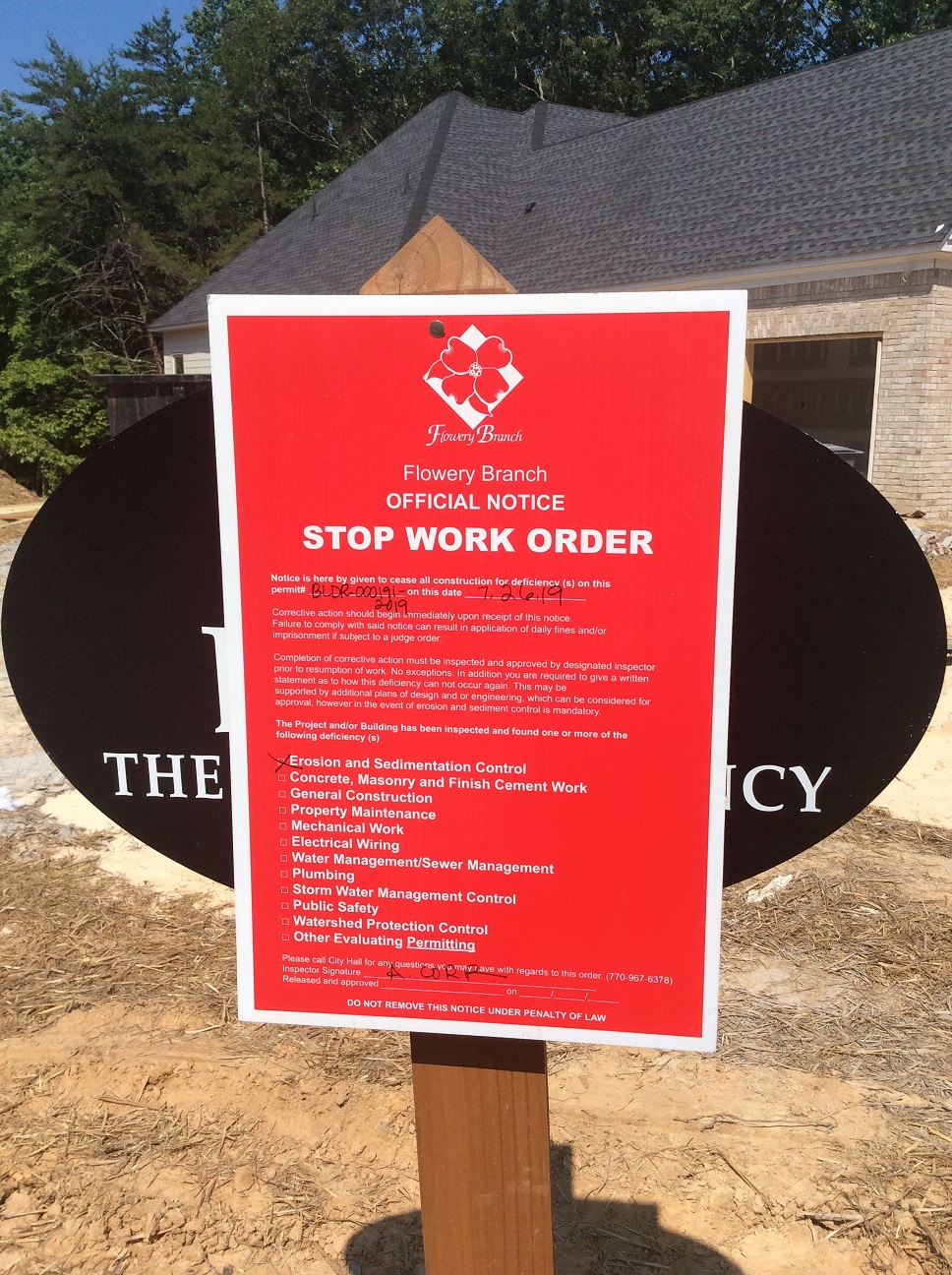
Alleged Environmental violation??
Have you found yourself as the named party in a Consent Order from the Georgia Environmental Protection Division regarding an alleged environmental violation, likely will steep fines and penalties? If so, it’s important for you to fully understand the process, since the regulators certainly do, and what your rights are.
What is a Consent Order? Two things are important.
A consent order or decree is an agreement or settlement that resolves a dispute between two parties without admission of guilt (in a criminal case) or liability (in a civil case). And, it is legally binding.
Although often misunderstood, just the name of the document alone helps explain what your rights are in these cases. It is called a “Consent Order”, since the Respondent, the named party, must consent, or agree to, what is in the Order before it can be made final and implemented.
So, contrary to popular belief of terms always being dictated, in fact both sides have the opportunity to have their say regarding what the facts are concerning any alleged violation of environmental laws, permits, rules, and regulations and to propose a plan to bring the matter to a close. Environmental rules are complex, mistakes do get made, and there is no one size fits all approach. While a regulator may see your situation the same as the one they dealt with on a similar site last month, in fact all situations are different if one takes the time to fully investigate.
Even though a Consent Order may be a negotiated resolution, it’s extremely important not to just ignore it and hope it goes away, or just sign the first thing that is offered hoping that will be the end of it.
Ignoring a Consent Order, or failure to come to an agreement on a Consent Order, will likely result in the regulator taking the next step in the enforcement process, which is an Administrative Order. In this case, terms are dictated, and there is no negotiation or opportunity for input into the process. There is a short time in which to appeal, but failing to appeal within the specified time frame or losing an appeal means the Order stands, and a judge will then determine what penalties will be imposed.
While most people want to resolve any issues quickly, think carefully before signing a Consent Order. Once it is signed, meaning both parties have consented, then each and every condition that was in the Consent Order is something the respondent is committed to fully complying with and completing. Signing and then failing to comply with a Consent Order will like lead to an Order of the Court process where a Superior Court judge for the county where the violations occurred gets involved and uses the authority of their court to enforce the terms of the Order and penalties for failure to comply.

Our Experience
The Riverbend Environmental team has decades of experience in environmental regulation, both regulator and regulated. We can use this knowledge and experience to help you navigate the process to a successful outcome with the absolute minimum downtime and penalties on the road to getting your site back in compliance and final resolution.
Frequently Asked Questions
If you have additional questions reach out and a team member will get in touch with you.
A Consent Order is a legal agreement that resolves a dispute between two parties, typically between a regulatory agency and an individual or organization, without admitting guilt or liability. It is legally binding and must be consented to by the respondent before it can be finalized and implemented.
It is called a “Consent Order” because it requires the agreement, or consent, of the named party (the respondent) in the order. This means the terms of the order are not unilaterally imposed but are agreed upon by both parties, giving both the chance to negotiate and propose solutions.
If you receive a Consent Order, it is crucial to review it thoroughly, understand the terms, and consider the implications of agreeing to them. Consulting with an environmental lawyer or a consultant specialized in environmental law can help you understand your rights and the best course of action.
Ignoring a Consent Order is not advisable as it will likely lead to more stringent enforcement actions, such as an Administrative Order, where terms are dictated without your input. Ignoring the order can result in higher penalties and less favorable terms for resolution.
Yes, negotiation is a key aspect of the Consent Order process. You have the opportunity to discuss and modify the terms proposed by the regulatory agency. This can include negotiating penalties, timelines, and specific actions required to remedy the violation.

